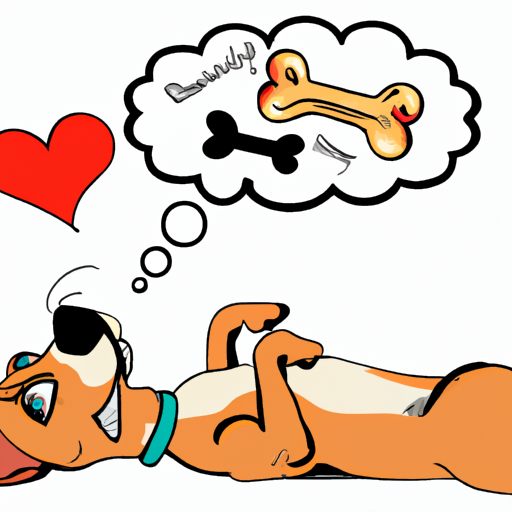“`markdown
Why Do Dogs Like Their Belly Rubbed?
1. Understanding Canine Behavior
You’ve probably noticed that your dog loves a good belly rub. But why do they enjoy this so much? The answer lies in understanding canine behavior.
Dogs are pack animals by nature, and in a pack, mutual grooming is a common behavior. It’s a way of strengthening social bonds and establishing hierarchy. When you’re rubbing your dog’s belly, you’re essentially grooming them. This not only feels good for your pet, but it also reinforces your bond and your position as the pack leader.
2. The Pleasure of Touch
Consider the sensation when someone you trust touches you in a comforting way. It’s calming, soothing, and can even be pleasurable.
For your dog, a belly rub can provide a similar experience. The skin on a dog’s belly is thinner than on other parts of its body, making it more sensitive to touch. This sensitivity can make a belly rub feel especially satisfying for your dog.
3. Ticklish Dogs?
Just as humans can be ticklish, so can dogs. The belly is one of the most ticklish areas on a dog’s body. When you rub their belly, you’re likely stimulating these tickly sensations, which many dogs find enjoyable.
4. Submission and Trust
A dog exposing its belly to you is a sign of submission and trust. It’s a vulnerable position for a dog to be in, so if your dog is willingly rolling over and offering their belly for a rub, they’re showing that they trust you completely.
5. Health Benefits
Not only do belly rubs provide enjoyment for your dog, they can also have health benefits. Regular belly rubs can help you keep an eye on any changes in your dog’s skin or fur, potentially alerting you to any health issues early on. Plus, the act of petting a dog has been shown to lower blood pressure and reduce stress in humans, so it’s a win-win!
Here’s a quick table summarizing the main points:
| Why Dogs Like Belly Rubs | Explanation |
|---|---|
| Mutual Grooming | Reinforces social bonds and hierarchy |
| Pleasure of Touch | Belly skin is sensitive to touch |
| Ticklishness | Belly rubs stimulate tickly sensations |
| Submission and Trust | Belly exposure is a sign of trust |
| Health Benefits | Helps monitor skin health and reduces human stress level |
Frequently Asked Questions
-
Are all dogs ticklish?
Not all dogs may be ticklish, and the level of ticklishness can vary from dog to dog. -
What if my dog doesn’t like belly rubs?
Every dog is unique. If your dog doesn’t like belly rubs, it’s completely fine. They might prefer a different type of petting or affection. -
Can belly rubs be harmful to my dog?
As long as you’re gentle and not causing any discomfort, belly rubs are not harmful. If your dog shows any sign of distress, stop immediately. -
How often should I give my dog a belly rub?
There’s no set rule here. You can give your dog a belly rub as often as you both enjoy it.
Remember, your dog’s belly rub is not just a way to spoil them – it’s a meaningful interaction that builds trust, provides comfort, and can even have health benefits. Enjoy this bonding time with your furry friend!
“`



